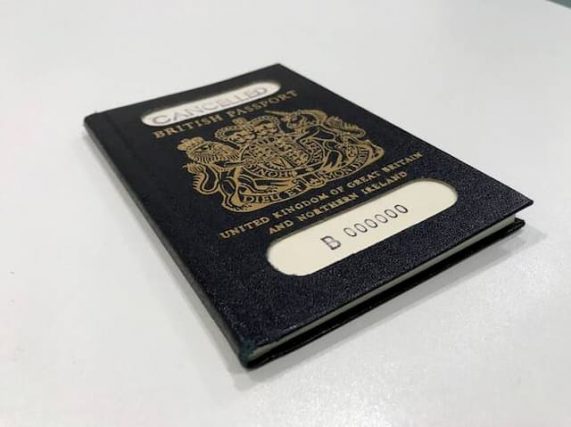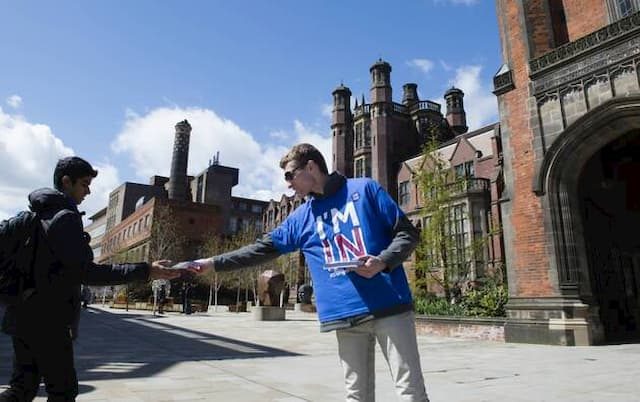Brexit: What Will Really Change from Saturday?

The United Kingdom officially leaves the European Union this Friday 31st January 2020, at midnight French time. Small, non-exhaustive tour of what Brexit will induce for expatriates, students, travellers, their animals, etc.
This January 31, at midnight French time, the United Kingdom officially leaves the European Union. But the effects of Brexit (for British exit) will, in reality, be hardly visible the next morning. We will have to wait until December 31st, 2020, the end of the transition period provided for by the agreement concluded between London and Brussels, to really cut the bridges. Unless there is a further extension, possible until the end of 2022 if both parties agree.
This reprieve should allow the British and Europeans to renegotiate one to one some 600 international agreements (trade, traffic, justice, defence, etc.).
For expatriates?
On the 1st February, the 3.2 million EU nationals living in the UK and 1.2 million Britons in Europe are obviously not asked to move. They also retain all their rights (work, pensions, social security, etc.), at least until December 31, 2020.
Europeans expatriated across the Channel must however, if they have not already done so, take steps to obtain a “settled status” (residence). For the moment, worried the European Parliament, most have obtained only temporary and not permanent residence status.
For travellers?
Since the United Kingdom is not a member of the Schengen area, a passport or identity card is already required to get there. Nothing new, therefore, at first. Ditto for the European health insurance card, necessary in the event of hospitalization in the United Kingdom: it remains valid for the time being. And after that? Everything will depend on the negotiations to come.
To note, however, a concrete change for the British: they can benefit from that 1 st February of a national passport, blue, on which no longer appear the words “European Union”.

For pets?
Over 300,000 European cats, dogs, ferrets and other pets travel to the UK each year for vacation or to live there. And around 250,000 British animals are making the opposite journey. Their conditions of entry or exit from the country will not vary, until December 31st, 2020. Just barely will they, as before, be microchipped and up to date with their vaccinations. For the rest, everything remains possible: new vaccines (rabies, etc.), quarantine at the border, etc. These arrangements will also be at the heart of the upcoming negotiations between London and Brussels.
For “duty free”?
The United Kingdom remains in the customs union until the end of the transitional period. No question, therefore, for the moment, of re-establishing “duty-free”: if the taxes on the products are settled in the country of purchase, the EU does not impose any restriction on the quantity of alcohol or tobacco. Customs will continue to ask, beyond 800 cigarettes and 10 litres of spirits acquired in the United Kingdom, if these products are intended for personal consumption, recalls the European Consumer Center.
For the driving license?
The European driving license will remain valid in the United Kingdom for the next few years, confirmed the British government. After the transitional period, on the other hand, the British could be forced to acquire an international permit to circulate in the EU, unless otherwise agreed.
For Erasmus +?
The student exchange program is maintained for the time being: Europeans who are studying or already carrying out an internship in the United Kingdom and British people in a Member State will be able to complete their studies under the same conditions, continuing to receive their scholarships. What happens next will also depend on the negotiations to come.

For customs tariffs?
Nothing changes until December 31. Beyond that, Northern Ireland, the only British province to have a common land border with an EU country (the Republic of Ireland), will enjoy a separate status. Goods produced in Northern Ireland will continue to flow to the EU without control. Those imported into Northern Ireland from Great Britain or a third country (non-European), and intended for the European market, will, however, be subject to customs controls in the ports or airports of Northern Ireland where they will arrive.
For fishermen?
The question of access to British territorial waters for European fishermen is already shaping up to be one of the main points of tension to be feared in the upcoming negotiations between London and Brussels. But fishermen can continue as before, at least until December 31st, 2020.
For the British in our cities?
757 Britons are elected to French municipal councils: this is the nationality most represented among the 2,500 non-French elected representatives of European origin. During the March 2020 elections, they will no longer be allowed to run on the lists, unless they have taken care to change their nationality, to acquire that of France … or another Member State. Same scenario for voters: the British will no longer have the right to vote in France.
For the British in Brussels?
They pack up. From this 1 st of February, the British no longer have the right to sit in the European institutions, or to take part in debates and votes. Their country will, however, continue, until the end of the transition period, to pay its contribution to the European budget, and will remain subject to all European rules and legislation.
At the European Parliament, the departure of the 73 British MEPs will be missed. The number of elected representatives rose from 751 to 705. Twenty-seven seats were also redistributed to demographically under-represented Member States. France recovers five…
For English in Brussels?
Among the 24 official languages recognized by the European Union, according to the treaties (art. 352 TFEU and art. 55 TEU), English remains the most widely used within the institutions. According to the European treaties, each new Member State is free to indicate “its” language at the very moment of its accession. In theory, Brexit obliges, English – chosen by the United Kingdom alone – could therefore disappear. But this would require a unanimous vote of the 27 states. It seems unlikely that Ireland and Malta – which had put forward Gaelic and Maltese when they joined – renounce English, the common language of their countries.
Enjoyed this? Get the week’s top France stories
One email every Sunday. Unsubscribe anytime.


